

|
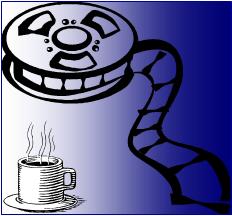 |
Nobody's Fool ______ 9/10
|
Please go to the new Coffee Coaster site implemented more gracefully in Wordpress. This page: http://brianrwright.com/CoffeeCoasterBlog/?p=3214 |
Paul Newman ... Donald 'Sully' Sullivan
Jessica Tandy ... Beryl Peoples
Bruce Willis ... Carl Roebuck
Melanie Griffith ... Toby Roebuck
Dylan Walsh ... Peter Sullivan
Pruitt Taylor Vince ... Rub Squeers
Gene Saks ... Wirf Wirfley
Josef Sommer ... Clive Peoples Jr.
Philip Seymour Hoffman ... Officer Raymer
Philip Bosco ... Judge Flatt
Catherine Dent ... Charlotte Sullivan
Miss Beryl: Do you still bet on that horse race of yours?
Sully: What, the trifecta?
Miss Beryl: Yes. Has it ever come in?
Sully: Not yet.
Miss Beryl: But you still bet on it.
Sully: Well, sure. I mean, the odds have gotta kick in sooner or later.
Miss Beryl: Fine. That's exactly the way I feel about you.
The bad news: Iconic actor Paul Newman has gone on to his great reward. The good news: People will finally realize how central he became to what it means to be a true American... this psychic gestalt of the spirit of independence in the form of a man's man and a lady's man in equal measure. For me it all starts with Cool Hand Luke, which was recommended to me by my best friend in high school, Rick "the Tennis Stud" Bartleson. Rick was also the one who first clued me in about the issue of Playboy that broke the pubic-hair barrier (Gloria Root—1969), and just generally seemed to know what was going on in the world outside Podunk (i.e. Okla-Baptist City, OK).
[The good ol' days, for sure. Bringing up all kinds of memories now, kind of like a Last Picture Show... in color, but without anyone like Cybill Shepherd swimming naked in the pool beside you. Rick and I—and this guy we called AJ[1] who lived a couple of doors down from me—would cruise a root beer drive-in named Coits. (I kid you not; at our reunion in 2002, the drive-in was still there. Back in the 60s, few of us okies realized you could strategically insert a "u" to the spelling and then it would stand for what just about every teenager was dreaming about as we ordered our colossal megaphones of icy root beer from the raspy voice on the menu box.)]
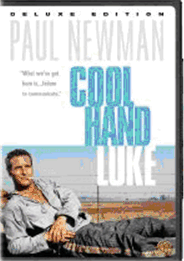 Back to Paul Newman and Cool Hand Luke: You have to realize this is 1967, the year I graduated high school and the year of a) the first Super Bowl, b) the ratcheting up of Vietnam and the antiwar movement and some very serious rock and roll music, c) the Apollo 1 tragedy.
Back to Paul Newman and Cool Hand Luke: You have to realize this is 1967, the year I graduated high school and the year of a) the first Super Bowl, b) the ratcheting up of Vietnam and the antiwar movement and some very serious rock and roll music, c) the Apollo 1 tragedy.
And the year before Bobby Kennedy and Martin Luther King were murdered (in ways so thoroughly consistent with demented US Kleptospook methodology the official stories are unmitigated bunk). Most of us white middle
class boys didn't know which way to turn: There's this US-internal, cultural civil WAR going on.
We don't feel comfortable either fastening up our jack boots for the military meatgrinder on the one side, or on the other side: tuning in, turning on, and dropping out.
So trying to stay sane, we go to the movies, looking for something to believe in. It was the time of the so-called antihero. Probably Steve McQueen and Paul Newman were the top-featured representatives of the antihero breed in those days. [I'd say Clint Eastwood, too, and maybe in the Spaghetti Westerns that would be reasonable, but his Dirty Harry work tended to cast ol' Clint in the image that too many cops—probably mistakenly—used for inspiration in their bouts of stormtrooper goon fantasies as they'd bust the heads of peaceniks and pot smokers.] Thinking back, the difference between Cool Hand Luke and, say, the individualistic McQueen character in The Great Escape is ol' Luke seemed to be having the time of his life... in every confrontation with "the man" all the way to his last great gesture of defiance.
Aside from the fact Luke didn't seem to know when to quit, a lot of us high-school senior guys facing a choice to subdue themselves to the system or to stand up to it somehow were given emotional fuel through Newman's inimitable, indomitable performance. It seemed to offer a third alternative: neither accepting crap from the money-power culture nor spending one's life tilting at windmills (nor bailing out into the fickle euphoria of the counterculture), rather carving out an untouchable world of our own. Law of averages makes it that some of those carving out the third way will do so with a flourish... like Luke, find risky tho creative ways to make the power people take it up the ol' wazoo.
Now, that's entertainment! But the real point of Cool Hand Luke is the Buddhist/Gandhian libertarian principle that nobody can deprive you of your freedom or your spirit but you. Check out V for Vendetta for a rousing chorus on that score: do not submit. In my case at the time of raging hormones and mega-ideology from Rand and others, throwing the imagery of the Cool Hand into the mix was potentially explosive. No way, then, to absorb it all; but I certainly got a charge. Thanks, Paul.
Sure, he's done a lot of other huge movies and lived a full life as a racing driver and a working philanthropist, but to me none of his work in the movies or on stage compares to this perfect swan-song film of 1994, Nobody's Fool. The nice thing about movies is that to appreciate them you only have to receive them: who cares how they come about or who makes it possible? [Tho of course we do care.] What distinguishes Nobody's Fool—not to mention it is literally Jessica Tandy's final film—is how the lead character Donald 'Sully' Sullivan is more like Paul Newman, the real person, than any other he's done (IMHO).
Sully is this unique person we all run into once or twice in a lifetime:
Yet what makes him unique is for someone who "never does anything right," in reality virtually everything he does, at least within the confines of the movie's timeline, is right. The tender/witty relationship with his landlady, the actual deep love between him and Toby, his ultimate steadfastness to his lowly friends, the growing consideration for his newly discovered family, his elevation of basic human decency over the regimented mentality of bad lawmen, and performance of numerous 'random acts of kindness.'
I'm particularly thinking of the scene where the senile mother of the owner of the town diner wanders out of the diner in her bathrobe, and proceeds to walk down the street in the snow. Ms. Peoples, who is at home having an argument with her son Clive Jr. at the time, sees the old lady from her window. Ms. Peoples doesn't ask her son to help, she instead calls out for her tenant Sully, who must painfully get dressed and put his boots on before he can get out the door to rescue the poor woman. But it's how he performs that task that gives us the full measure of the man: I'm not going to give the dialog away, but it's graceful, clever, and makes the woman feel she's the belle of the ball... not some wretch who needs to be put away for her own good.
I'm telling you—and believe me, I'm not a Christian—when I think of "what would Jesus do" (WWJD), this scene comes to mind in living color. How Donald Sullivan recovers the wandering woman on the snow-covered streets of North Bath, New York—the woman's name is Hattie, played by Alice Drummond—is a work of the highest artistic concept... both from the actor and from the writer who conceived the incident and the wonderful story it practically distills the essence of.
But since my review today is mostly in the form of a tribute, let's consider that what we know of Paul Newman as a human being is in many ways comparable to these sterling Jesus-like qualities exhibited by Sully. When I got the news of Newman's death, it hit me with a sadness, yet mostly against the general lamentable fact that we have to lose such quality people. Paul Newman had developed a deeper philosophy of life than is commonly witnessed in the superficial incentives of Celebrity World. Indeed, from this memorial in the New York Times, I pull the following telling and consoling quote:
“We are such spendthrifts with our lives,” Mr. Newman once told a reporter. “The trick of living is to slip on and off the planet with the least fuss you can muster. I’m not running for sainthood. I just happen to think that in life we need to be a little like the farmer, who puts back into the soil what he takes out.”
Now if that isn't Sully-like (or Jesus/Buddha-like), I don't know what is.
###
One final note:
The low-key humorous banter—between Sully and each of the unique, sensitively-yet-honestly drawn characters—is one of the most rewarding features of the movie. It's yet another humanizing feature of the character created by Richard Russo and caringly enacted by Mr. Newman.
###
[1] We nicknamed him AJ because one day driving his father's Ford Comet station wagon, he whips into a stall at Coits and nails the right-front fender and headlamp. AJ Foyt was probably the dominant American race car driver of the time. Kids can be so cruel.
[2] {symbolized particularly by local shady business owner Carl Roebuck (Bruce Willis) and his landlady's—his landlady Beryl Peoples (Jessica Tandy) was also Sully's 8th grade teacher—scheming banker son Clive Peoples, Jr. (Josef Sommer)}
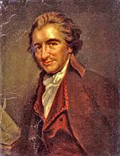
Law Enforcement Against Prohibition
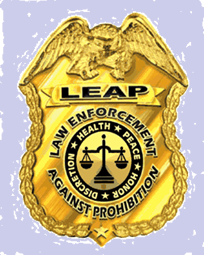
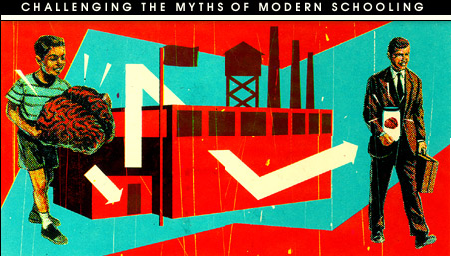
 Click banner to order, click here for book review
Click banner to order, click here for book review
 Click banner to order, click here for book review
Click banner to order, click here for book review
 |
 |
|||
| |